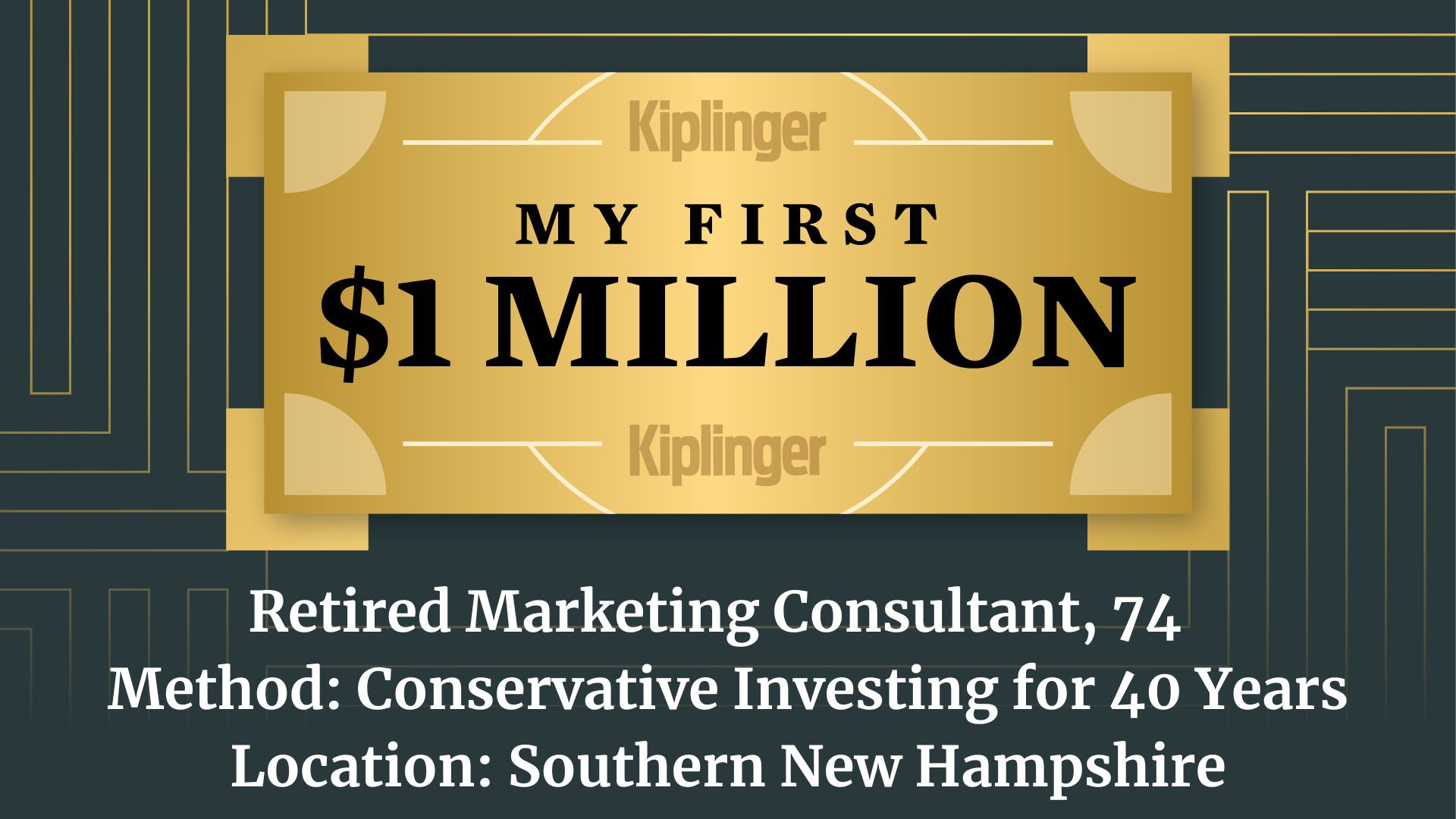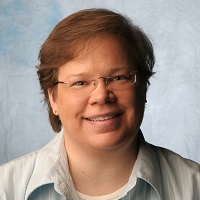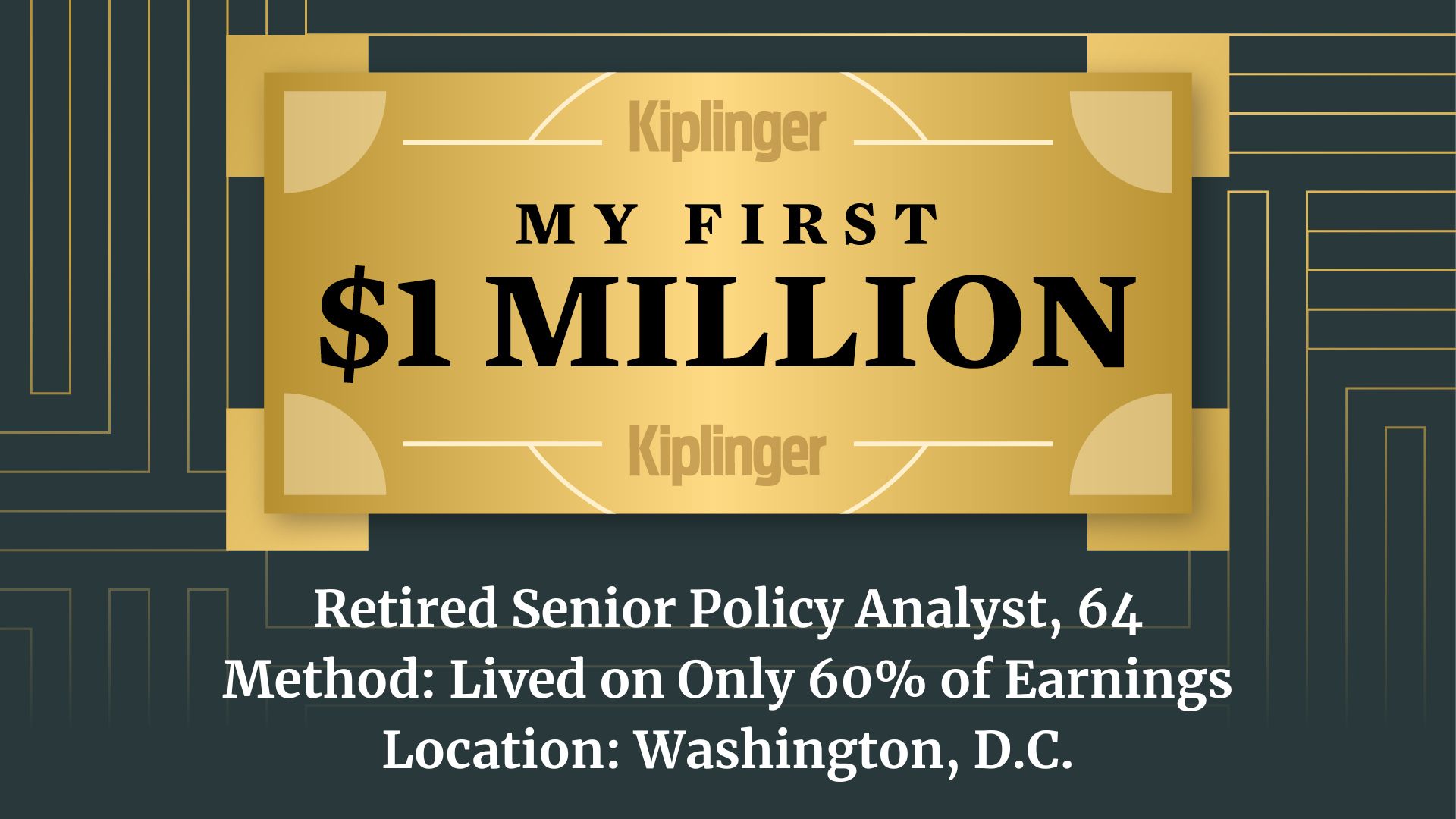My First $1 Million: Retired Marketing Consultant, 74, Southern New Hampshire
"A modest inheritance was invested in a Vanguard Balanced Fund. I still own that fund, and over 30 years, it has increased 400% in share value."


Profit and prosper with the best of Kiplinger's advice on investing, taxes, retirement, personal finance and much more. Delivered daily. Enter your email in the box and click Sign Me Up.
You are now subscribed
Your newsletter sign-up was successful
Want to add more newsletters?
Welcome to Kiplinger's My First $1 Million series, in which we hear from people who have made $1 million. They're sharing how they did it and what they're doing with it.
This time, we hear from a married 74-year-old retired marketing and communications consultant for global technology firms. He lives, and works part time, in Southern New Hampshire and is originally from New York City.
See our earlier profiles, including a writer in New England, a literacy interventionist in Colorado, a semiretired entrepreneur in Nashville and an events industry CEO in Northern New Jersey. (See all of the profiles here.)
From just $107.88 $24.99 for Kiplinger Personal Finance
Become a smarter, better informed investor. Subscribe from just $107.88 $24.99, plus get up to 4 Special Issues

Sign up for Kiplinger’s Free Newsletters
Profit and prosper with the best of expert advice on investing, taxes, retirement, personal finance and more - straight to your e-mail.
Profit and prosper with the best of expert advice - straight to your e-mail.
Each profile features one person or couple, who will always be completely anonymous to readers, answering questions to help our readers learn from their experience.
These features are intended to provide a window into how different people build their savings — they're not intended to provide financial advice.
THE BASICS
How did you make your first $1 million?
I first achieved the $1 million milestone in 2017 at the age of 66. It was earned over a 40-year period of conservative investing in low-cost domestic and international stock and bond funds.
A modest inheritance from my parents came when they both passed within a year. I invested in a Vanguard Balanced Fund. I still own that fund, and over 30 years, it has increased 400% in share value.

What are you doing with the money?
We plan to live comfortably in a retirement community with available health care and pay for health care as our needs evolve.
We also want to leave the remaining balance to our children and grandchildren.
THE FUN STUFF
Did you do anything to celebrate?
I took my wife to dinner. We have a low-maintenance lifestyle, so this was a milestone to be appreciated for gaining peace of mind in our imminent retirement years.

What is the best part of making $1 million?
Emotional relief. Barring economic catastrophe or severe health issues, we secured a base level of economic independence.
Did your life change?
The money provided a glide path into our retirement years and enabled us to pay down our mortgage and remaining debts.

Did you retire early?
My wife retired in her early 60s. I retired at my full retirement age of 66 after my job was transferred to a distant office, and I opted to accept a modest financial buyout.
This enabled me to maintain health coverage until I became eligible for Medicare and Social Security.
LOOKING BACK
Did you work with a financial adviser?
We invested with an adviser affiliated with two major brokerage firms, but the investment advice resulted in higher commissions for the firms than returns for our account.
We switched to Vanguard brokerage in the early 2000s and never looked back. Our adviser at Vanguard is a fiduciary and has our interests as his goal.
Vanguard advisory fees are less costly than a typical independent adviser who might charge 1% to 1.5% of invested assets annually.

Did anyone help you early on?
Mentors at my workplace understood much of what I've stated above. They didn't always express it, but they led by example.
LOOKING AHEAD
Any advice for others trying to make their first $1 million?
Try saving a little more each month. It hurts your lifestyle a little, but it makes a big difference in a few decades. Save at least 10% to 15% of your monthly earnings, plus any company matches.
Also, during the Great Recession, I was laid off from three separate jobs. The most critical issues were maintaining some income, health insurance for my wife and myself and avoiding raiding our retirement funds for living expenses.
We were able to do this by these methods (which others could apply to their own situation):
- Apply for all unemployment and educational benefits in each state you work and reside
- Buy or spend only when absolutely necessary
- Delay / defer noncritical expenses
- Do not raid your investments and retirement funds. Ever!
- Maintain a strict budget for food, going out, driving, etc.
- Take any job — consulting, contract, gig or part-time work that contributes income

What's your secret to surviving the business world?
Never stop networking! Always maintain professional connections even when it's inconvenient.
You never know when a job will sour, and it's an advantage to have connections who can help. A little paranoia in the business world is useful!
Do you have an estate plan?
We have a will, a power of attorney and a living will. Our estate planning attorney advised these actions based on our types of assets and assuming straightforward probate.
What do you wish you'd known …
When you first started saving? You can never predict the future. Jobs may be lost instantly — your employer doesn't care about you except for the immediate returns you contribute. They may hire a younger, cheaper person — you are expendable.
Save your money, live below your means and take advantage of every dollar match contributed by your employer.
When you first started investing? Read John C. Bogle (founder of Vanguard Investments) to understand the power of low-fee investing.
Don't raid your retirement funds no matter how tempting. You cannot make up lost funds once you're retired and living on a fixed income.
Before you retired? I did research on geographic locations, health care, long-term care costs and options, so there were not a lot of unknowns by the time retirement age came around.

Kiplinger is a valuable resource for researching where to live, taxes, health care and housing costs. Plan for the worst, adapt and execute your plan under the current circumstances.
When you first started working with a financial professional? If you feel unheard, don't understand the investment advice or cannot speak honestly about your fears and financial goals, look elsewhere.
Much like a marriage, you are in a partnership where both parties benefit from trust.
If you have made $1 million or more and would like to be anonymously featured in a future My First $1 Million profile, please fill out and submit this Google Form or send an email to MyFirstMillion@futurenet.com to receive the questions. We welcome all stories that add up to $1 million or more in your accounts, although we will use discretion in which stories we choose to publish, to ensure we share a diversity of experiences. We also might want to verify that you really do have $1 million. Your answers may be edited for clarity.
RELATED CONTENT
- You're 62 Years Old With $1 Million Saved: Can You Retire?
- Want to Earn $1 Million More Over Your Lifetime? Do This
- Do You Have at Least $1 Million in Tax-Deferred Investments?
- Are You Rich? U.S. Net Worth Percentiles Can Provide Answers
- Compare Your Net Worth by Age
Profit and prosper with the best of Kiplinger's advice on investing, taxes, retirement, personal finance and much more. Delivered daily. Enter your email in the box and click Sign Me Up.

As Contributed Content Editor for the Adviser Intel channel on Kiplinger.com, Joyce edits articles from hundreds of financial experts about retirement planning strategies, including estate planning, taxes, personal finance, investing, charitable giving and more. She has more than 30 years of editing experience in business and features news, including 15 years in the Money section at USA Today.
-
 4 High-End Experiences Worth the Splurge After 50
4 High-End Experiences Worth the Splurge After 50These curated date ideas provide the perfect backdrop for couples ready to enjoy the very best that the world has to offer.
-
 Health Care Stocks Have Sagged. Can You Bet on a Recovery?
Health Care Stocks Have Sagged. Can You Bet on a Recovery?The flagging health care sector has perked up a bit lately. Is it time to invest?
-
 Costco's Auto Program: Can Membership Pricing Really Save You Money on a Car?
Costco's Auto Program: Can Membership Pricing Really Save You Money on a Car?Costco's Auto Program can simplify the car-buying process with prearranged pricing and member perks. Here's what to know before you use it.
-
 What Is an Assumable Mortgage and Could It Save You Thousands?
What Is an Assumable Mortgage and Could It Save You Thousands?With mortgage rates still elevated, taking over a seller’s existing home loan could lower monthly payments — if the numbers work.
-
 Have You Fallen Into the High-Earning Trap? This Is How to Escape
Have You Fallen Into the High-Earning Trap? This Is How to EscapeHigh income is a gift, but it can pull you into higher spending, undisciplined investing and overreliance on future earnings. These actionable steps will help you escape the trap.
-
 I'm a Financial Adviser: These 3 Questions Can Help You Navigate a Noisy Year With Financial Clarity
I'm a Financial Adviser: These 3 Questions Can Help You Navigate a Noisy Year With Financial ClarityThe key is to resist focusing only on the markets. Instead, when making financial decisions, think about your values and what matters the most to you.
-
 Where Olympians Store Their Medals is a Great Lesson For Your Valuables and Cash
Where Olympians Store Their Medals is a Great Lesson For Your Valuables and CashWhat you can learn about protecting your cash and values from where Olympians store their medals.
-
 An Executive's 'Idiotic' Idea: Skip Safety Class and Commit a Federal Crime
An Executive's 'Idiotic' Idea: Skip Safety Class and Commit a Federal CrimeSeveral medical professionals reached out to say that one of their bosses suggested committing a crime to fulfill OSHA requirements. What's an employee to do?
-
 How You Can Use the Financial Resource Built Into Your Home to Help With Your Long-Term Goals
How You Can Use the Financial Resource Built Into Your Home to Help With Your Long-Term GoalsHomeowners are increasingly using their home equity, through products like HELOCs and home equity loans, as a financial resource for managing debt, funding renovations and more.
-
 How to Find Free Money for Graduate School as Federal Loans Tighten in 2026
How to Find Free Money for Graduate School as Federal Loans Tighten in 2026Starting July 1, federal borrowing will be capped for new graduate students, making scholarships and other forms of "free money" vital. Here's what to know.
-
 My First $1 Million: Retired Senior Policy Analyst, 64, Washington, D.C.
My First $1 Million: Retired Senior Policy Analyst, 64, Washington, D.C.Ever wonder how someone who's made a million dollars or more did it? Kiplinger's My First $1 Million series uncovers the answers.